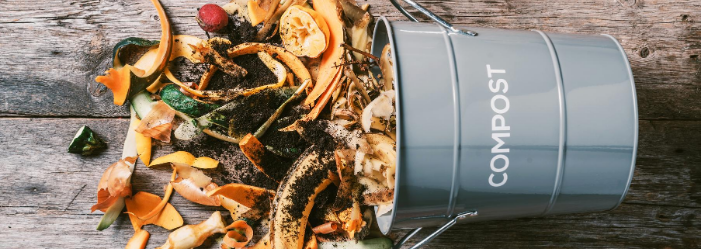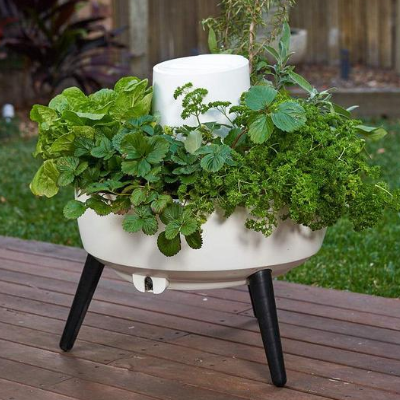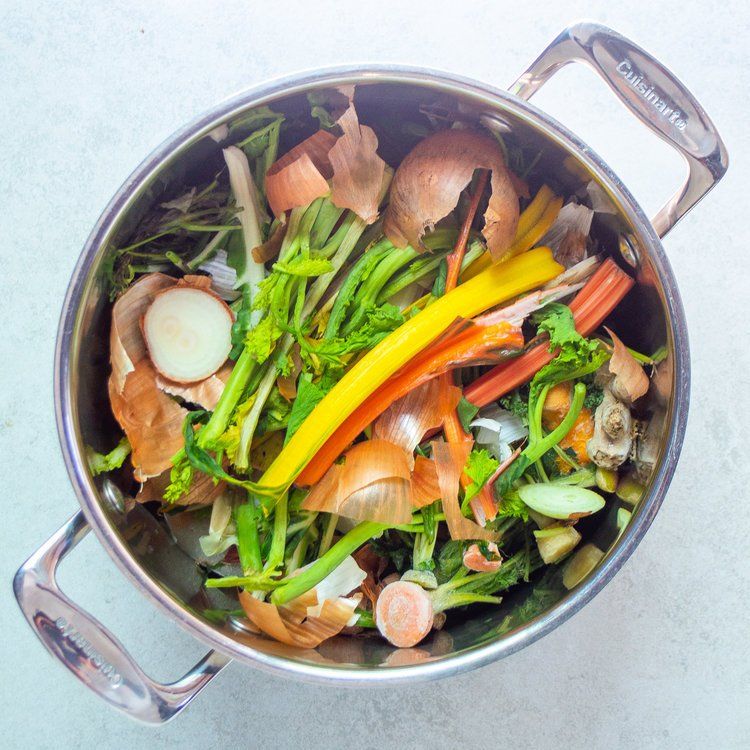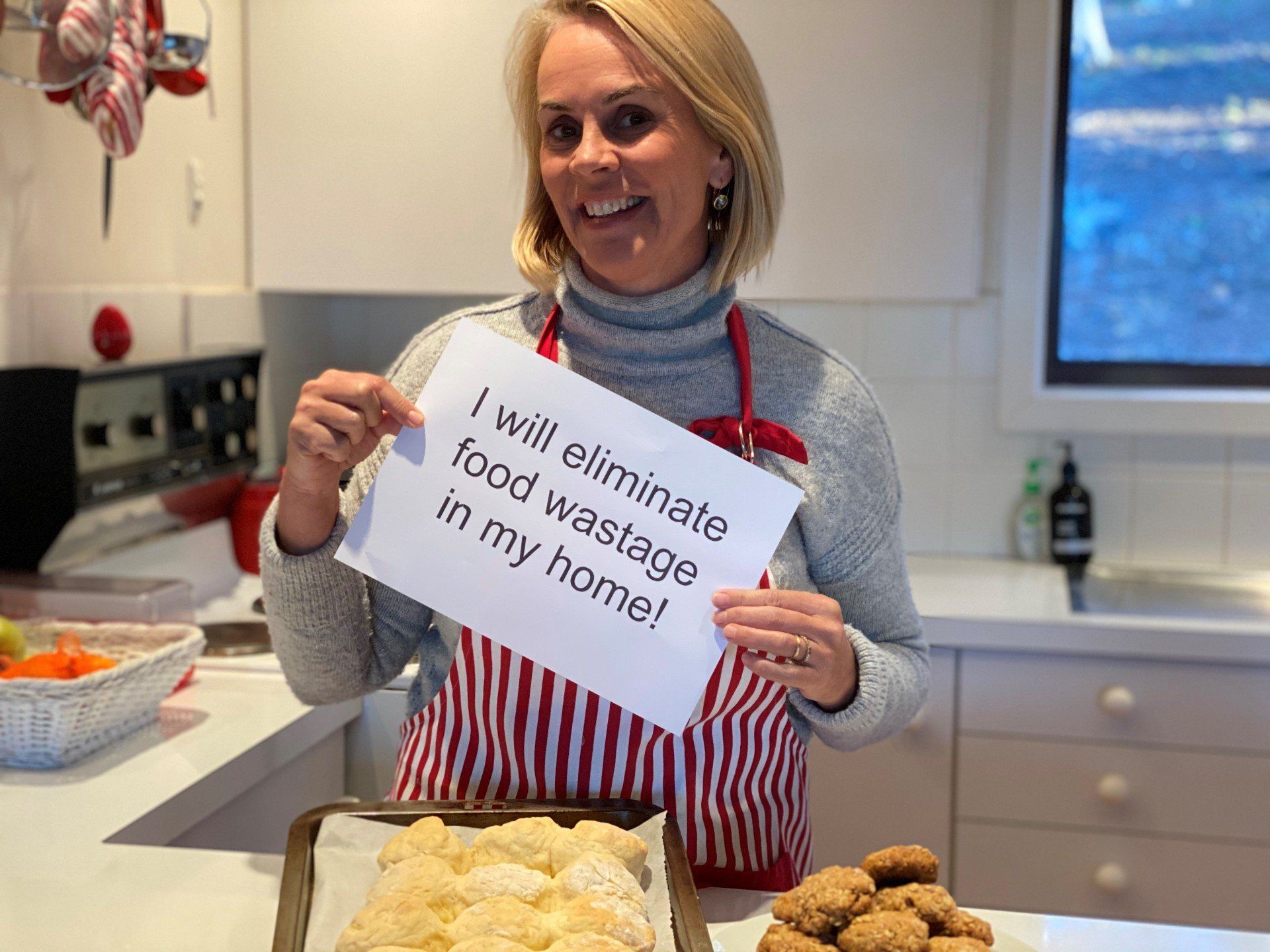Happy International Composting Week!
When it comes to reducing the amount of food waste we throw out as rubbish each week (which can be as much as a third to half of our household bins), many of us don’t know where to begin and wrongly assume that the solution is onerous, smelly and dirty - and that a big garden or outside space is an imperative.

You're probably aware of the horrifying stats: in Australia, over seven million tonnes of food ends up as landfill, enough to fill 13,000 Olympic sized swimming pools every single year. And of course, when food scraps are sent to landfill, they release methane - in fact, if food waste was a country, it would be the third biggest emitter of global greenhouse gases, after USA and China.
The good news is that soon, we'll all have a FOGO (Food Organics Garden Organics) bin - which is a kerbside collection service that allows food scraps to be added to your garden waste bin, so it can be recycled into top quality compost. Right now, only around 30% of Australian households have access to FOGO collection services, however the Federal Government has committed to providing FOGO services to all households by the end of 2023. Organic waste collected in FOGO bins is processed to create nutrient-rich, weed-free compost that can be used on farms, in parks and as fertiliser.
But without FOGO, when it comes to reducing the amount of food waste we throw out as rubbish each week (which can be as much as a third to half of our household bins), many of us don’t know where to begin and wrongly assume that the solution is onerous, smelly and dirty - and that a big garden or outside space is an imperative.
The good news is that it is easy to start - and achievable for apartment dwellers! And here's a tip - check out The Compost Revolution to get up to 80% off a compost unit, worm farm, or bokashi bin - they work with councils across Australia to deliver discounted composting gear to your door.
What you can do?
Firstly; the simplest, most low-maintenance solution is to join Share Waste – it’s a free app that connects people who wish to recycle their kitchen scraps with neighbours who are already composting, worm-farming or keeping chickens. So that makes it super easy to simply collect your food scraps in your kitchen (there’s no need to buy anything special - just use a spare container with a lid) & drop them off to someone who can make use of them. No mess, no fuss!
But if you want to reap the benefits of seeing your own food waste go into creating nutrient rich soil; how do you decide what’s best for you?
Worm farming, composting and bokashi are the three most popular options, so let’s break it down:
Wormfarming suits if you:
- Don’t produce a lot of food scraps
- Have a smaller place and no access to any bare earth
- Don't have any garden materials (such as grass clippings or leaves) you need to get rid of
The best thing about a wormfarm is you can keep it in a courtyard, or on a balcony. Check out these super stylish combined garden/wormfarms from Composta :
Composting is best if you:
- Have space to put a compost unit (most compost bins sit on bare earth but you if you don’t have a patch of dirt available, you could consider a tumbling composting unit)
- Have garden waste (you’ll want to be using 50/50 food scraps & garden waste)
Composting allows you to add in a larger volume and greater variety of food scraps than in a wormfarm (garlic, onions and citrus are all banned in wormfarms) and you can also throw in your garden clippings and leaves.
If you live in an apartment with no outdoor space, a bokashi bin is your best bet (though in this case you’ll technically be fermenting rather than composting by using microbes to break down your food waste).
A bokashi suits if you:
- Don’t have a great deal of space
- Want to compost meat, dairy, bread, and small bones (all without smelling or attracting insects!)
- Have somewhere to bury the fermented semi-solid matter (but of course this is where Share Waste can come in - you can donate your by-product to a neighbour, or drop it off at a community garden)
The best news? Whichever choice you make; whether you opt for a compost unit, worm farm or bokashi bin, be prepared to almost halve the amount of rubbish you put in your bin each week!
Curious about FOGO?
How is the FOGO bin different from the green bin?
Many councils already offer a green bin for garden collection, but how is it different from a FOGO bin? The FOGO bins swallows all your organic waste. That includes all garden and food waste (including meat and fish scraps and dairy products), animal droppings, kitty litter as well as paper and cardboard, whereas the green bin typically only takes garden waste such as grass clippings and wood trimmings.
Where does FOGO go?
As with your recycling bin, there might be different FOGO providers in different council regions who collect and process the waste. The FOGO waste is taken to the provider’s composting facility for industrial composting. After checking the waste for contamination, it will undergo a rapid composting process under high temperature.
Is FOGO composting different from composting at home?
There are a few differences between home composting and commercial composting.
While it is not recommended to compost meat, fish and some other table scraps at home (think vermin…), they all can go into the commercial composter. Bulky items such as cardboard and garden trimmings are too large and would take too long to break down in your home composter but can be composted commercially thanks to the pre-processing that FOGO waste undergoes to create a uniform mass of smaller chunks. Then there are items such as kitty litter, and cups that are labelled as “compostable” but need high temperatures to break down. They would not disintegrate in your garden compost but can be composted in the high-temperature commercial composter.
Go FOGO when the time comes!
Councils are progressively rolling out FOGO bins to their residents, so you may not be lucky enough to have a FOGO bin yet. Breathe easy though, through the National Waste Policy Action Plan, states and territories have agreed to introduce FOGO collection services to all households and businesses by end-2023. If you're still waiting, why not get proactive and contact your local council to ask about the timeframe for your area? Many councils ask passionate and enthusiastic local residents to become "FOGO Ambassadors" and provide access to educational workshops, enabling you to speak to your neighbours about the coming changes and be a source of knowledge for the local community.
Search for other blog topics:





